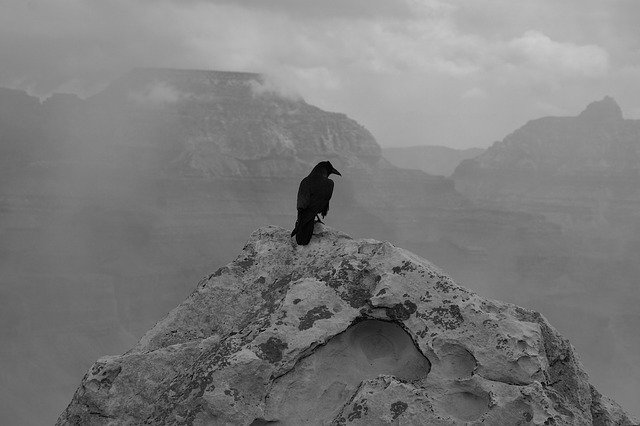
When I first heard the trope that the word fear stands for “false evidence appearing real,” I was in my 20s. I remember being distinctly intrigued and trying to recall stories that seemed to embody the notion, but nothing particularly noteworthy came to mind.
My sphere at the time consisted largely of other single men and women in a tight-knit faith community. Our social calendars were packed, our cares were few, and our lives seemed fairly insulated from the types of things in life that can tend to invoke fear on any kind of significant level.
Living with a faith that acknowledged God could do things like part seas and raise people from the dead, coupled with a strong social circle that also acknowledged these things, gave me a sense of security. It allowed me to traipse through the days, months, and years with an assuredness. A courage, of sorts.
Little did I know that this so-called courage came largely from the fact that I had a rather carefree life. It certainly wasn’t due to navigating fear myself. Nor did I have people around me confronting the types of situations that could potentially reveal whether or not fear was, indeed, false evidence appearing real.
Flash forward to a few years ago when I was in the middle of the most frightening (and heart-wrenching) period of my life.
“You’ve done a great job of constructing your life in a way that allows you to try to maintain control.”
I stared at my therapist, unsure how to respond.
She was right. I really had.
Was it intentional? Nope.
Was I even aware of it? Absolutely not, which is why I stared at her like a deer in headlights as I processed what she said.
Interestingly, in those earlier years as my 20s came to a close and gave way to my 30s, not only was I not learning how to effectively navigate fear in my life, but something else was going on.
In many ways, I was actually becoming a more fearful person.
Fear can be a subtle thing, so of course I didn’t realize what was going on.
And since I claimed to trust a God who’s in the business of doing miraculous things, I certainly didn’t think that I was silently gripped by fear at some level.
But as it turns out, nothing taught me to fear more than my religion did.
Perhaps a bold statement, but for me, it was absolutely true.
Maybe it was the evangelistic tract I saw as an impressionable kid that showed an angel throwing a man into a lake of fire because his name wasn’t written in the Book of Life.
Maybe it was when I was an insecure teen wrestling with my sexuality and someone prayed to cast the demons out of me.
Maybe it was the fateful night when I was 22 and attending a Bible study that ended when a well-meaning young man looked in my eyes and posed the question, “So if you got hit by a bus and died on your way home tonight, where would you go?” (“hell” being the correct answer, naturally).

Maybe it was the subsequent years of hearing about the dangers of sin, the dangers of becoming lukewarm in my faith, the dangers of impure thoughts and lust and sexual temptation, the dangers of straying from the straight and narrow, the dangers of false teachings and false doctrines, and the dangers of falling away from the faith.
And why were all of these things so dangerous? Because ultimately they precluded the biggest danger of all – the danger of hell.
So yeah, fear was real for me.
Now it’s not like it was present in any kind of conscious daily way that impacted things like going to work or enjoying a vacation, but it was there.
And those messages from within the heart of my faith community certainly weren’t the focus of every conversation or teaching or sermon. But more often than not, they were the subtext. And that subtext was pervasive.
So perhaps even more destructive than having all of this going on at a conscious level, it had taken root deep within. At a subconscious level.
It’s no secret that our subconscious beliefs have enormous power in our lives. Our subconscious is behind the wheel. The captain of the ship, so to speak (for those of you familiar enough with the movie Jaws to remember the line “Hooper drives the boat, Chief,” we could rephrase it a bit for our purposes here and say that our subconscious drives the boat).
And it’s true.

It’s why people repeat unhealthy patterns in their lives over and over even though they know it’s unhealthy and despite their attempts to make choices to the contrary. It’s because of subconscious beliefs, programming, hardwiring.
If there’s fear rooted in there, it’s absolutely going to impact us in ways that we won’t even realize.
“You’ve done a great job of constructing your life in a way that allows you to try to maintain control.”
Of course. Of course I had. Because maintaining control creates certainty. Certainty creates security. And security is what alleviates our fears.
But it’s all an illusion.
There’s much to be said about fear. How it works. What it triggers inside of us. The energy it creates. How far-reaching it can be. How hard it can be to identify.
And, for sure, it’ll affect each of us differently depending on our individual stories.
For now, I’ll just say that in the years leading up to that moment in my therapist’s office, I’d been fortunate enough to start seeing the role that fear had been playing in my life. More specifically, the role that religion had played in hardwiring fear within me (this clarity came in small part thanks to a fascinating book called How God Changes Your Brain).
I had started dismantling the unhealthy beliefs that had taken root. And I’d begun the work of embracing different beliefs that allowed new neural pathways to start forming in my brain.
That’s not to say that the place life was taking me wasn’t still terrifying. It absolutely was.
But deep down, I had an assurance like never before that things were going to be okay. I didn’t need to be gripped by fear. I could allow myself to feel it, but instead of being paralyzed by it or trying to move away from it, I could step into it.
Would I say that “false evidence appearing real” is an accurate summation of fear?
My experience in recent years would lead me to say yes.
That said, I’m far less impressed by clever acronyms than I was as a twenty-something, so it’s unlikely that I’ll start evangelizing this one.

I appreciate the stories you write. In this one, you speak to fear that many can relate to. Overcoming that fear is a challenge.
Have you ever thought about publishing your writing on Medium? I’ve been a Medium subscriber for over a year and enjoy the insights and perspectives of people on the platform.
Thanks for the suggestion! I’ll look into it. 🙂
Love me a good acronym! Keep fighting for yourself and your liberation from the shackles that bind.